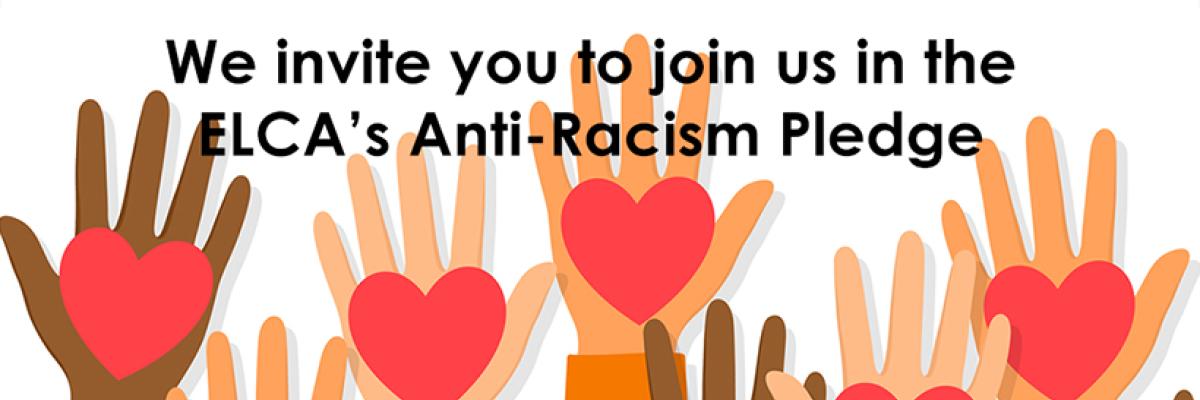The killings of Ahmaud Arbery, Breonna Taylor, Dreasjon (Sean) Reed, and George Floyd are among the most recent in a long history of too many similar tragedies. In June, we also joined in remembrance of the Emanuel Nine, nine African Americans killed by a young, self-professed white supremacist during Bible study at the Emanuel African Methodist Episcopal Church in Charleston, South Carolina on June 17, 2015, and we recall, with sadness, that their killer was once a member of an ELCA congregation. And we clearly see that some people are more likely to be stopped or killed by police, to suffer from illnesses including COVID-19, and to be denied loans, housing, or a greater income, and to face other discrimination because of the color of their skin.
Christ died and rose again to make all people one with God. As Ephesians 2:13-14 reminds us, “But now in Christ Jesus you who once were far off have been brought near by the blood of Christ. For he is our peace; in his flesh he has made both groups into one and has broken down the dividing wall, that is, the hostility between us.” If we are all children of God, then it is a sin against God and our neighbors to stand by, indifferent to a society that causes some to suffer more than others, and that unjustly benefits some more than others.
We are called to repent. As Presiding Bishop Elizabeth Eaton said in her sermon for Trinity Sunday, “Until the white majority feels within their soul that the pain and suffering of black and brown people is our own pain and suffering, it will not be safe to be black or brown in America.” And we are called to act. We must change ourselves and our society. We are called to join in God’s work of breaking down the dividing walls in our society and making us into one.
We ask each person in our synod to personally commit to the difficult and necessary work of repentance and change. To learn about the history of racial discrimination and its lingering effects, and to take steps to change them. To be better citizens and to better manifest our love for our neighbors and God. We also ask each of our synod’s congregations to commit to this work. To develop an anti-racism plan and to partner with racial justice organizations. To be God’s church in the world.
Please join us in taking the ELCA Anti-Racism Pledge. Our churchwide and synod offices have resources to help us, which may be found at https://elca.org/emanuelnine and www.pacificasynod.org. Our synod’s Equity, Diversity, and Inclusion Working Group will add more resources over time. Bishop Andy Taylor recently sent a letter inviting us to work together for racial justice, which we echo.
We, the members of your synod council, have committed to doing this work in the synod, in each of our own congregations, and in our lives. The Office of the Bishop’s staff has joined us. Will you join us, too?

